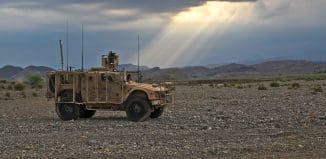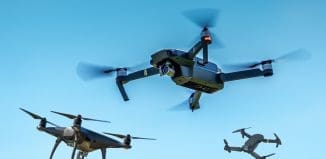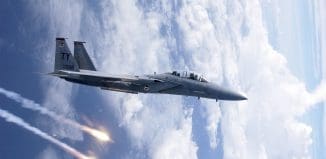UPS Tests Drone Delivery Options
This post is also available in:  עברית (Hebrew)
עברית (Hebrew)
Shipping giant UPS has launched testing of drones to deliver packages to remote and difficult to reach locations.
UPS begun the tests recently using a drone from CyPhy Works to stage a mock delivery of medicine from Beverly, Mass. to Children’s Island, which is about three miles off the Atlantic coast.
In the mock scenario, the drone successfully carried an asthma inhaler to a child at a camp on the island, which is not reachable by automobile.
Mark Wallace, UPS senior VP of global engineering and sustainability: “Our focus is on real-world applications that benefit our customers. We think drones offer a great solution to deliver to hard-to-reach locations in urgent situations where other modes of transportation are not readily available.”
“There is increasing interest in the use of drones both from a delivery perspective as well as within warehousing and yard management,” said Cathy Roberson, head analyst for consulting firm Logistics Trends and Insights.
According to Trucks.com, rival shipping firm DHL, for example, has run similar test of pharmaceutical deliveries to remote locations in Germany.
The Federal Aviation Administration issued rules in June governing the use of small commercial drones. The FAA regulations allow drones 55 pounds and under to fly during the day at altitudes lower than 400 feet. Drones can be operated into twilight hours if they have anti-collision lighting, the administration said.
Operators will have to obtain a certification lasting 24 months that requires they be at least 16 years old, pass an aviation knowledge exam and register their drone online.
For now, drones will have limited use in the U.S. for shipping and delivery services. The FAA requires unmanned drones must always be in sight of the operator. Control of the aircraft isn’t allowed from a moving vehicle.
The line-of-sight regulation makes most package delivery unfeasible, Mike Britt, director of maintenance and engineering for international operations at UPS, told Trucks.com earlier this year.
Many in the industry expect the FAA to eventually loosen the regulations. Retailers and delivery companies banking on drones say the technology will allow drivers to make more deliveries per hour without driving additional miles
Other commercial uses for drones include crop monitoring, power and pipeline inspection in hilly or mountainous terrain and antenna inspections.
UPS is experimenting with drones in warehouses in Louisville, Ky. and Venlo, Netherlands to check high storage racks to confirm stock or available space. The shipping company said it also plans to test the use of drones for facility monitoring and external airplane equipment inspection.
The FAA estimates that the drone industry could create more than 100,000 jobs and generate $82 billion for the U.S. economy in the next decade.





























